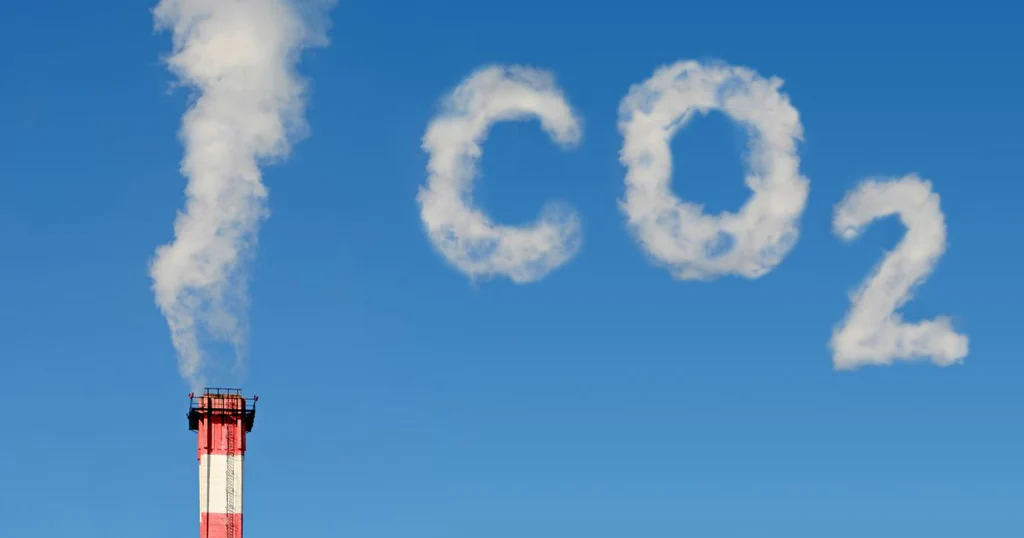Carbon Sequestration is a Big Win for WI Ag

By: Senator Jeff Smith
Severe drought conditions plagued Wisconsin’s growing season this spring and summer. This winter shifted from fifty degrees and rainy to subzero temps and snowy. I don’t often put a lot of stock in short term weather observations as an indicator for climate change, but it’s hard not to notice over my own lifetime how our weather has progressively gone haywire. There is no doubt that cumulative observations and data gathering around the world is showing that climate change is to blame.
As carbon dioxide levels increase, we need a solution to put the carbon back into the ground where it belongs – it’s called carbon sequestration. This is where farmers play a key role in our work toward curbing the effects of climate change. Farmers don’t put on their bibs, grease up their equipment and say, “I’m going to sequester carbon today,” but they do a darn good job of it. Their primary goal is to profit from the land, but they accomplish far more than that just by doggedly pursuing their primary purpose.
Farmers understand weather. It should come to no surprise, they are taking notice of erratic weather patterns, changing precipitation levels, and the increasing frequency of extreme weather events. For farmers to produce, they need goldilocks weather – not too hot, not too cold, not too dry, and not too wet. Consistent seasonal weather helps them plan for planting and harvesting. But climate change poses a significant challenge for farmers to produce high crop yields and maintain overall farm productivity.
Farmers are seeing the benefits of carbon sequestration practices such as cover cropping, agroforestry, and no-till farming. These actions stabilize soils during heavy rains, provide carbon to the soil through plant material that decays allowing microbes essential for plant growth to thrive and add nutrients back into the ground to be utilized by the next crop. Most of all though, carbon sequestration methods are natural and efficient ways to rehabilitate soils while also producing crops. It lets farmers leave the ground better for future generations.
If those reasons aren’t enough, increased profitability may be the main reason farmers are adopting carbon sequestration practices. Improved soil health leads to higher yields, reduces dependence on synthetic fertilizers, and lowers production costs. Farmers can market directly to carbon-conscious consumers too. Sustainably grown products fetch a premium in the market, offering Wisconsin farmers a competitive edge.
A carbon credit marketplace is emerging rapidly and farmers stand the most to gain from it. It essentially puts a price on pollution. Companies that cannot go green or want to go green can offset their emissions by purchasing credits from farmers or others who are committed to carbon sequestering practices. This presents a lucrative opportunity for farmers to diversify income streams. It is relatively new, but it could help farmers with the financial resources to retool their practices and put a little extra cash in their pockets just by doing the right thing.
The only stumbling block for the farmers in Wisconsin to participate in the carbon farming marketplace is a confidential and standardized calculator designed to show farmers how much they can be paid for adopting new practices.
Recently, in the Senate Agriculture and Tourism Committee, we approved Senate Bill 409. This bill from Senator Rob Cowles (R-Green Bay) and Loren Oldenburg (R-Viroqua) allows our Department of Agriculture, Trade and Consumer Protection (DATCP) to create a free online, interactive carbon calculator. This new tool would allow farmers to confidentially plug in information about their farming operation into the calculator to figure out new ways to reduce their carbon footprint and how to enhance their current practices for carbon sequestration.
Carbon sequestration is not merely a scientific concept; it is a practical solution with tangible benefits for Wisconsin farmers. It is truly a win-win-win for farmers – it lowers carbon dioxide emissions, regenerates soils and creates significant financial incentives. Farmers are resilient, resourceful individuals who are geared well for tackling climate change. They might just be the linchpin for our way out of this mess. Either way, farmers adopting carbon sequestration practices today will usher in a new era of agriculture designed for regeneration and sustainability for generations to come. That is something we can all believe in.
